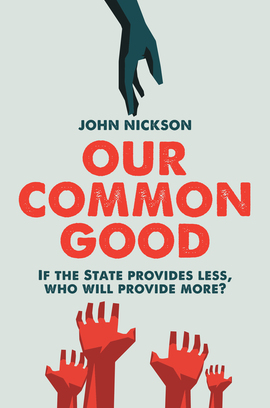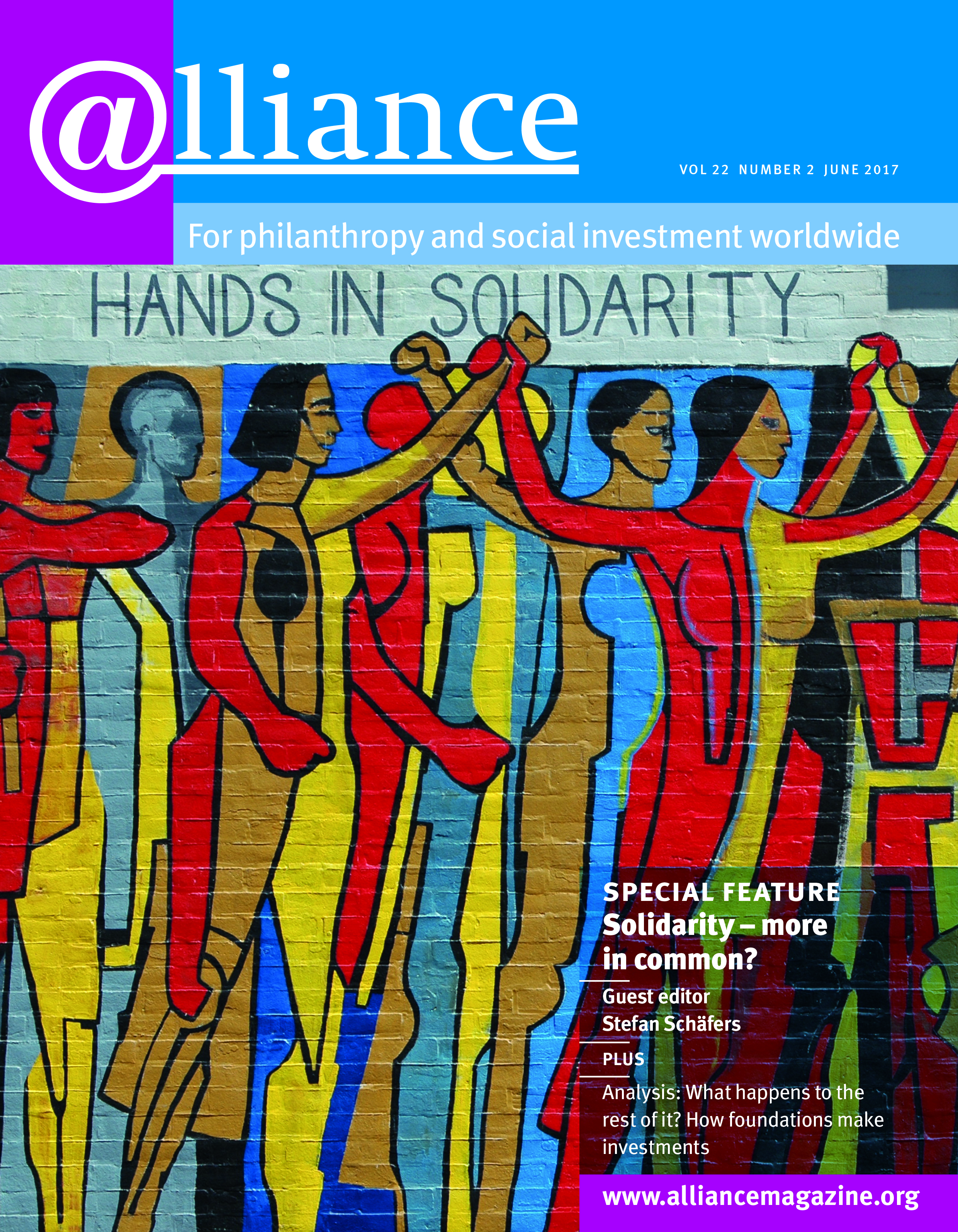Our Common Good: If the state provides less, who will provide more? written by acclaimed fundraiser for the arts, John Nickson, is a powerfully argued statement of the need for new partnerships between the state, social and private sectors to meet societal needs.
Nickson’s book, a follow-up to Giving is Good for You, sets out to answer some important questions about how to support the vulnerable in an age when the economic squeeze and a new political discourse mean that the state is no longer the guarantor of the common good.
 Coming myself from the world of charities and giving, it is easy to agree with every word. The challenge will be in ensuring that those who are not already converted – those in big business and government – are persuaded to hear its powerful argument.
Coming myself from the world of charities and giving, it is easy to agree with every word. The challenge will be in ensuring that those who are not already converted – those in big business and government – are persuaded to hear its powerful argument.
The first half of the book sets out the challenges facing contemporary UK society, with chapters devoted to: the lack of equality; disadvantages faced by young people; inadequate funding for higher education sector and the arts; and our growing housing shortage.
If this list of societal problems sounds as if it paints a bleak picture, it does: Nickson marshals a career’s worth of preparing a case for support to construct a picture of a system at breaking point.
Nickson argues that charitable giving alone cannot be the answer: individual, corporate and foundation giving does not have the capacity to meet all social need. A system change is required to create new partnerships between the state, commerce and the voluntary sector.
In the second part of the book, Nickson gives a number of examples of local authorities that have moved into enabler roles and philanthropists acting as change-makers. In these cases, social change is driven through venture philanthropy, investing in new ideas, risky solutions and unpopular causes.
Many of the examples he quotes, such as the OnSide Youth Zones and Uprising, are already well known in the sector for offering new models of local provision. Nickson draws on them to argue that responsibility to secure the common good rests on all of us: it is our civic duty, and more than that, ‘giving is good for you’.
Nickson has conducted wide-ranging research over a number of years for this book, interviewing diverse and important experts such as Helena Kennedy on law, Marcelle Speller on philanthropy, and leading philanthropists on why and what they give.
He quotes at length from interviews, which does give the book the sense that it is part of a movement. For me, however, the variety of different voices slows down the text as the author’s own voice is lost. Inevitably there are a variety of viewpoints represented among those interviewed and, presented without comment or critique, this can be confusing.
For example, the philosopher AC Grayling, founder of the private university the New College of Humanities, is quoted at length alongside an interview with Gavin Kelly of the Resolution Foundation – formerly deputy chief of staff for Gordon Brown – whose views on other matters would presumably be quite different.
Nickson’s conclusion is that we must engender a new society of shared responsibility for social outcomes. Individuals must step up their contribution of time and money to charities, including through their taxes.
Private foundations must be prevented from hoarding their endowments, and corporations and the super-rich must experience pressure to give back to society. But to achieve all this there must be dynamic leadership.
In his last chapter, Nickson’s recommendations require state intervention: to reduce regulation on charities, empower and free local authorities, and to incentivize and punish the super-rich and companies through taxes.
As a member of the ‘Giving Nation’ myself, I was convinced by every word in this book, but to achieve the ambitious vision that Nickson sets out, it is not me who needs convincing.
I hope that the book is part of a movement that can carry forward Nickson’s powerful arguments for social change.
Tessa Hibbert is regional grants manager, The Blagrave Trust. Email tessa.hibbert@blagravetrust.org
About the book
Published by: Biteback Publishing
Price: £20
ISBN: 9781849548038
To order: bitebackpublishing.com







Comments (0)